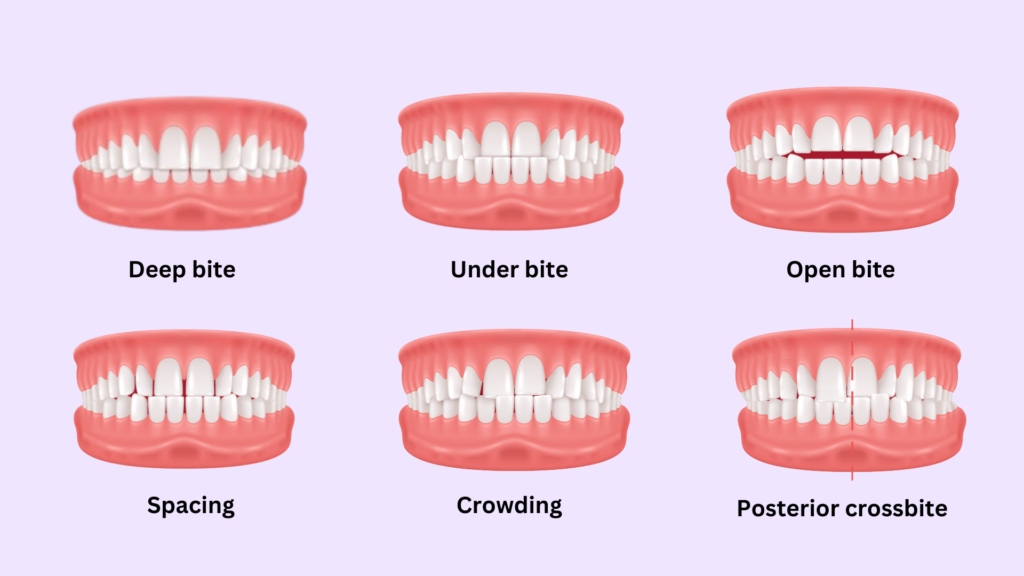Article reviewed by:
Dr Soh Shean Han • Orthodontist

A healthy, confident smile can do wonders for a child’s self-esteem — and as a parent, knowing when to seek orthodontic care can make all the difference. While braces are commonly associated with the teenage years, orthodontic issues can often be identified much earlier. Early intervention — also known as interceptive orthodontics, can help guide jaw development, correct bite issues, and potentially prevent more complex treatments in the future.
How do you know when your child might need orthodontic care? Let’s explore the signs to watch for and when to schedule that first visit.
Table of Contents
Signs your child may need orthodontic treatment
Here are some common signs that your child might benefit from an orthodontic evaluation:

- Early or delayed loss of baby teeth
- Difficulty biting or chewing food
- Speech impediments
- Crowded or crooked teeth
- Gaps between teeth
- Protruding front teeth (overjet)
- Deep bite (increased vertical overlap between front teeth)
- Open bite (front teeth don’t overlap when back teeth are biting together)
- Underbite (lower front teeth ahead of upper front teeth)
- Posterior crossbite (lower back teeth biting too far inside or outside of upper back teeth)
- Jaw misalignment
Even if your child’s teeth appear straight, there could be underlying jaw or bite issues that aren’t visible without a specialist’s assessment.
What age should a child first visit the orthodontist?
The American Association of Orthodontists recommends that children get their first orthodontic screening by age 7. By this age, most children have a mix of baby and permanent teeth, allowing orthodontists to detect early concerns with jaw growth or tooth positioning, even if braces aren’t needed right away.
For more details about orthodontic treatment options, check out our Comprehensive Guide to Braces in Singapore.
Why early evaluation matters
Early orthodontic screening doesn’t always mean immediate treatment. Depending on your child’s needs, interceptive orthodontics might be advised to:
- guide proper jaw development
- create space for crowded teeth
- correct habits like thumb sucking
- prevent more serious issues later on
Early evaluation can potentially reduce overall treatment time and, in some cases, even eliminate the need for braces in the future.
What happens during the evaluation?
During an orthodontic consultation, your child’s orthodontist will:
- examine your child’s bite and tooth alignment
- take dental X-rays, if needed
- assess jaw growth and development
- recommend treatment (if necessary) or advise on the best time to start
The goal is to create a personalised plan for your child’s oral development.
Final thoughts
Schedule an orthodontic evaluation if you’ve noticed any signs listed above or want peace of mind. Early detection is crucial in potentially preventing more significant issues from developing in the future and ensuring your child’s smile develops beautifully and healthily.
Think your child might need braces?
Don’t wait. Book a consultation with our orthodontist today to ensure their smile develops the right way from the start.







